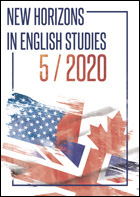Social Contexts of Indirect Requests in Polish and Hungarian
Social Contexts of Indirect Requests in Polish and Hungarian
Author(s): Agnieszka Veres-GuśpielSubject(s): Language and Literature Studies, Applied Linguistics, Sociolinguistics
Published by: Wydawnictwo Naukowe Uniwersytetu Marii Curie-Sklodowskiej
Keywords: social contexts; indirectness; illocutionary metonymy; illocutionary scenarios
Summary/Abstract: The paper presents the influence of social context on illocutionary metonymy in directives evoked by various elements of request scenarios. As the human language activity reflects the physical and social worlds of the intersubjective context (cf. Verschueren 1999), the recognized and construed social relations have an impact not only on addressive forms, but also on the appearance of other elements such as indirectness and its scalarity.Indirect directives are based on illocutionary metonymic scenarios (Panther and Thornburg 1998) and by evoking a part of the scenario referring to the core action they give access to the illocutionary scenario domain. The scalar nature of indirectness (Panther and Thornburg 1998, see also Panther and Thornburg 1999, 2007 and Thornburg and Panther 1997), depends on the number of evoked elements and their conceptual distance from the core of the request. It can be based on conventional grammatical structures (e.g. auxiliary verbs) or giving hints by only introducing the action scenario. As Veres-Guśpiel (2013) has shown the chosen type of indirectness is influenced by social context and the weight of a directive (for the latter, see also Csató and Pléh 1988, Pléh 2012).The main question of the presented research regards types of illocutionary metonymy, that can be experienced in various social contexts and what their frequency of use is.
Journal: New Horizons in English Studies
- Issue Year: 5/2020
- Issue No: 1
- Page Range: 24-47
- Page Count: 24
- Language: English

